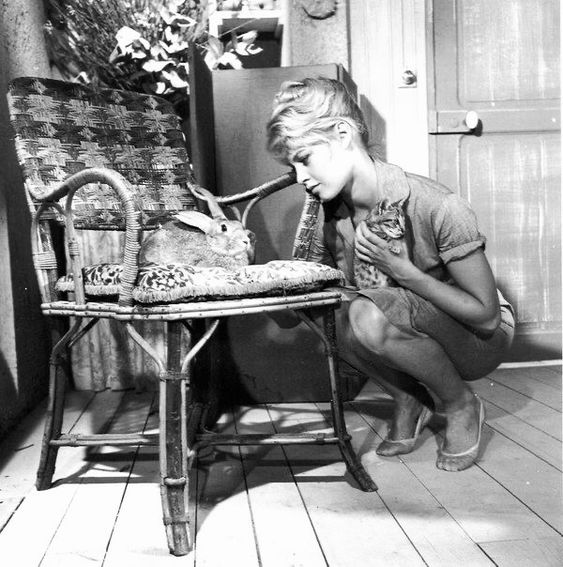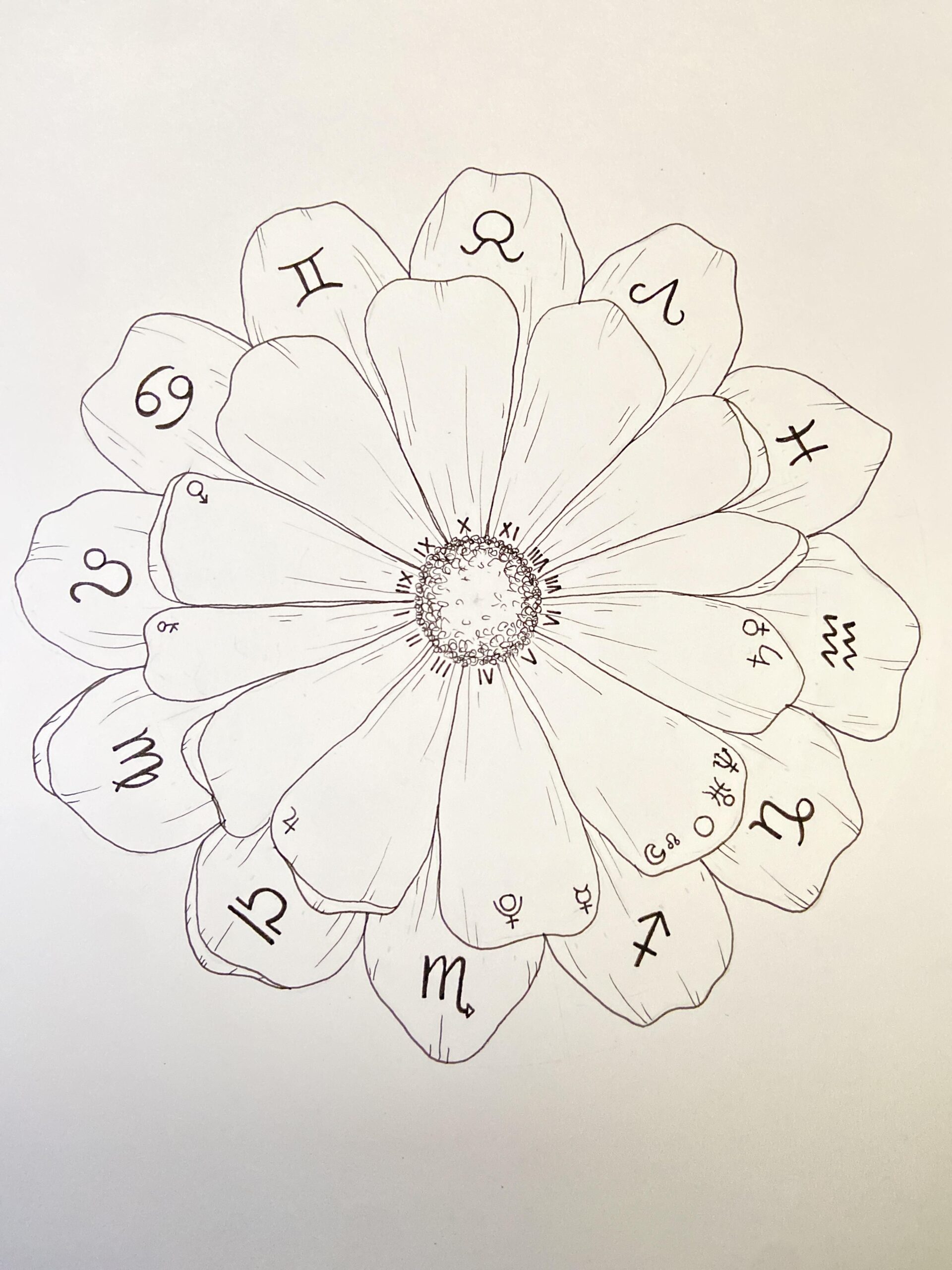
Neptune in the 2nd House: The 6 Most Dangerous Traps
 Neptune in the 2nd house is a placement that suggests your relationship with money is more of an oceanic flow state. But that doesn’t mean you’re doomed to financial instability—it just means your path to abundance looks a little different. With Neptune here, money might feel like an illusion—sometimes it’s there, sometimes it’s not, and the moment you try to grasp it too tightly, poof, it’s gone. This placement can lead to a somewhat blurry relationship with finances, where you either romanticize wealth or completely detach from it, believing that material possessions are beneath you (until you realize, inconveniently, that rent still exists in this dimension). Rather than following conventional routes to financial security, you may find that prosperity comes when you surrender to your higher calling. Neptune blesses you with intuitive talents, artistic gifts, and a deep understanding of the unseen. Your wealth may come through creativity, spirituality, healing, or other forms of service that connect you to something beyond the physical realm.
Neptune in the 2nd house is a placement that suggests your relationship with money is more of an oceanic flow state. But that doesn’t mean you’re doomed to financial instability—it just means your path to abundance looks a little different. With Neptune here, money might feel like an illusion—sometimes it’s there, sometimes it’s not, and the moment you try to grasp it too tightly, poof, it’s gone. This placement can lead to a somewhat blurry relationship with finances, where you either romanticize wealth or completely detach from it, believing that material possessions are beneath you (until you realize, inconveniently, that rent still exists in this dimension). Rather than following conventional routes to financial security, you may find that prosperity comes when you surrender to your higher calling. Neptune blesses you with intuitive talents, artistic gifts, and a deep understanding of the unseen. Your wealth may come through creativity, spirituality, healing, or other forms of service that connect you to something beyond the physical realm.
You might not be a “saver” in the traditional sense, but you could attract financial opportunities in unexpected, almost magical ways—so long as you’re aligned with your soul’s purpose rather than chasing illusions of success. One of Neptune’s greatest lessons in the 2nd house is distinguishing between self-worth and net worth. If you’re not careful, you might struggle with feelings of inadequacy, particularly if you measure success by society’s standards rather than your own spiritual compass.
True wealth for you is found in experiences, inspiration, and connection rather than numbers on a bank statement. Learning to trust that the universe provides (while also setting up some practical financial habits) is key.
You might attract wealth in mysterious ways—through intuition, artistry, or sheer serendipity. The problem arises when the same fog that brings you inspiration also blinds you to practicalities. Neptune doesn’t do boundaries well, and that can make it difficult to manage money wisely. Money comes, money goes, and if you’re not careful, you might not even notice the moment it vanished. But let’s not mistake Neptune’s fluid nature for a curse. There is a profound lesson in learning to see abundance as something beyond the material. Your true wealth lies in your ability to connect with something greater than yourself—whether that’s through creativity, spirituality, or an intuitive understanding of what people need on a deeper level. You don’t need to reject financial stability to live the higher ideals Neptune offers. There’s a way to let money flow to you while also keeping enough of it to feel secure. If you can learn to manage Neptune’s gifts without getting lost in its illusions, you might just find that true abundance—both spiritual and material—was waiting for you all along.
The Great Contradiction
The great contradiction of this placement is that the planet of dreams, illusions, and transcendence is tangled up with a house that demands practical, material security. There’s an undeniable beauty in this placement, though. Neptune asks you to redefine value, to see wealth not in the rigid terms of possessions but in something more mutable—creativity, intuition, spiritual fulfillment. You might be the type of person who instinctively resists attaching your self-worth to a paycheck, sensing that real abundance is something far more elusive.
This can make you deeply generous, even to your own detriment. You may give freely, believing that money is meant to flow, but struggle when it comes to setting boundaries around what is yours to keep. At its highest expression, Neptune in the 2nd house invites a kind of financial mysticism—an ability to attract resources through inspiration, artistic talent, or an almost psychic sense of opportunity. But the same qualities that make this placement magical can also make it murky. There’s a risk of being unrealistic about money, of getting lost in financial illusions, of assuming that everything will simply work itself out without any concrete action. Neptune’s gift is trust, but its challenge is discernment.
Neptune in the 2nd house is also about value, about how we define what is truly worth having. This is the house of the things we own, but also of self-worth, and when Neptune drifts in, it dissolves the lines between what we have and what we believe we deserve. One of the most profound effects of this placement is the way it warps perception. Money, material security, and even your own talents might feel vague or intangible, like something that exists just beyond your grasp. You might go through life feeling strangely removed from financial matters, treating them as something secondary, something that “works itself out” in ways you don’t entirely understand. And often, it does—sometimes miraculously. People with Neptune in the 2nd can attract money in mysterious ways, as if by divine orchestration. Perhaps you fall into unexpected windfalls, find benefactors, or somehow always have just enough, even when logic says you shouldn’t. But Neptune isn’t only a planet of miracles; it’s also a trickster, a maker of illusions. Just as it can bring wealth in dreamy, unconventional ways, it can also create financial fog—unclear income streams, chaotic earnings, or a tendency to lose money through forgetfulness, deception, or blind faith in the wrong people. There’s a risk of being so trusting, so idealistic about money, that you become an easy target for financial manipulation or bad investments. You might even find yourself in a pattern of self-sacrifice, giving away your resources too freely, believing that others need them more than you do.
Self Worth
And then there’s the question of self-worth. The 2nd house isn’t all about what you have—it’s about what you believe you deserve to have. With Neptune here, this belief can be hazy, shifting, hard to pin down. You might go through cycles of feeling unworthy of financial success, of struggling to put a price on your talents, of letting imposter syndrome hold you back from claiming what is rightfully yours. You might even romanticize poverty in some way, seeing wealth as something corrupting, something that dilutes purity of purpose. But that, too, is an illusion.
The real lesson here is integration. Neptune in the 2nd house calls you to see money as something sacred, not something to be feared or ignored. It asks you to align your material life with your higher values, to find ways of making a living that feel meaningful rather than transactional. Traditional wealth-building methods may not work for you, but that doesn’t mean you are destined for instability. When you channel Neptune’s gifts—intuition, creativity, even spirituality—into something tangible, you can create an abundant life without compromising your ideals.
You don’t have to choose between material security and spiritual fulfillment. In fact, the very challenge of Neptune in the 2nd is to understand that they were never separate to begin with. Money, like Neptune itself, is poetry in money—it moves, it transforms, it reflects the energy we bring to it. If you learn to flow with it, rather than against it, you might find that financial stability isn’t something you have to chase—it’s something that emerges naturally, as a byproduct of trusting your own worth.
It Dissolves
This placement carries the feeling of trying to balance a dream on the edge of a knife—always shifting, always just out of reach. The 2nd house craves stability, predictability, something to hold onto. But Neptune doesn’t hold onto anything. It dissolves, it drifts, it tells you that nothing in the material world is truly permanent, so why try to control it? This can create a kind of push-and-pull dynamic, where you want financial security but struggle to engage with the practical steps needed to achieve it.
There’s often a subconscious resistance to structure with Neptune here. Budgets might feel restrictive, financial planning too rigid, as if trying to pin down money would somehow strip it of its magic. And yet, without some kind of framework, wealth can feel like water slipping through open hands. You may find yourself in cycles of financial boom and bust, periods of effortless abundance followed by times of inexplicable scarcity. The challenge isn’t necessarily making money—it’s keeping it, grounding it, ensuring it’s used in ways that support long-term security rather than being lost to vague expenses, questionable investments, or a general disinterest in the logistics of financial management.
Money, under this influence, is not only currency—it’s energy, it’s exchange, it’s a reflection of one’s relationship with trust and surrender. When you have Neptune in the 2nd house, you may be deeply intuitive about wealth, attracting it when you are aligned with your higher purpose, often through artistic, spiritual, or humanitarian pursuits. You may find that when you act from a place of inspiration rather than fear, resources flow naturally to you.
Making Sacrifices
The classic Neptune in the 2nd house predicament is when money becomes a source of emotional drama, a shifting tide where you are either drowning in helplessness or throwing yourself into the noble (and often impractical) mission of saving others. This placement can make finances feel deeply personal, almost karmic. Your relationship with money is tangled up in something far greater than mere transactions. It’s not about numbers in an account—it’s about worth, about sacrifice, about what it means to give and receive.
The victim-savior archetype plays out in subtle and not-so-subtle ways. You might find yourself constantly struggling with money, feeling as though financial stability is something other people get to have while you are left adrift, at the mercy of forces beyond your control. At the same time, when money does come in, there can be an almost compulsive need to give it away, to rescue those in need, to prove that material wealth isn’t what defines you. This can be deeply admirable but also deeply destabilizing, leading to cycles of self-sacrifice followed by inevitable depletion.
What makes this pattern so tricky is that it often feels righteous—giving selflessly, helping others, proving that money doesn’t own you. But when generosity is fueled by guilt or an unconscious desire to atone for having resources at all, it can quickly become unsustainable. You might find yourself drawn to people who take advantage of your kindness, or to situations where you are constantly “bailing out” others at the expense of your own stability.
The lesson here is to find balance. You are not meant to be either the martyr or the messiah of money. Neptune in the 2nd house asks you to dissolve illusions—especially the illusion that you must choose between being financially secure and being spiritually pure. True generosity comes from a place of overflow, not from lack. When you look after your own financial well-being, you are in a much better position to help others in ways that are truly meaningful and sustainable. This placement can be a powerful gift when understood—your intuition about money is strong, your ability to attract abundance is real, and your capacity for generosity is immense. But to harness this potential, you must step out of the extremes of helplessness and see money as simply a resource.
The Spiritual and the Material
This placement invites you to dissolve the rigid walls between the spiritual and the material, to see money not as something separate from your higher ideals but as a tool that can serve them. When you lean into this understanding, you might find that financial success arrives in unexpected ways—through creative endeavors, healing work, artistic expression, or any path that allows you to uplift and inspire. Money may come when you stop chasing it and start embodying what you truly value.
This isn’t to say you won’t face challenges—Neptune always brings a little fog, a little uncertainty, a test of trust. But when you surrender to the idea that wealth is an energy, a cycle, a reflection of how freely you give and receive in the world, you might just find that abundance flows to you as effortlessly as the tide. Not through force, not through anxiety, but through faith in something beyond the material—a faith that, when grounded, becomes its own kind of security.
Neptune in the 2nd house is a dreamer’s placement, one that sees money not as a mere resource but as something imbued with emotion, meaning, and even a touch of the divine. There’s an inherent generosity here, a deep-seated desire to help those in need, to redistribute wealth in a way that feels more compassionate and just. You might be the kind of person who gives without hesitation, who feels an almost spiritual obligation to support others, whether through charity, creative work, or simply offering what you have to those who seem to need it more.
But the same boundless empathy that makes you so generous can also make you vulnerable to financial confusion. Neptune is not a planet of clear lines and hard facts—it dissolves, it distorts, it creates mirages that seem real until they vanish. In the 2nd house, this means money can feel strangely unreal, as if it operates on rules that don’t quite apply to you. Budgets might feel restrictive, long-term planning might seem unnecessary, and the idea of financial discipline could feel at odds with the more intuitive way you relate to resources.
This is where the challenge lies: balancing your idealism with practical wisdom. It’s easy to be swept up in visions of wealth—believing that money will simply manifest if you trust enough, or that success will come without effort. And while it’s true that Neptune can bring financial blessings through intuition, it also asks you to be wary of illusions. Wealth gained without awareness can slip away just as easily, and blind faith in financial miracles can lead to cycles of instability.
Instead of forcing yourself into rigid financial systems that don’t resonate, find ways to bring handle your finances that feel less effort. This might mean automating savings so you don’t have to think about them, working in fields that allow you to blend creativity and service, or surrounding yourself with people who can help ground your financial decisions. Most importantly, recognize that while money can be a tool for compassion and transcendence, it is also something that requires care and attention.
The Shadow Side of Neptune
The shadow side of Neptune in the 2nd house is when the financial sirens call you toward the rocks, the mirage of abundance that vanishes when you reach for it, the shark in the water that circles just as you’re about to relax. If Neptune here isn’t consciously managed, it can lead to some truly slippery, treacherous situations when it comes to money.
Here are the most dangerous traps:
1. Financial Deception—Being Scammed or Misled
Neptune is the planet of illusion, and in the 2nd house, that illusion can manifest as financial deception—either being scammed, manipulated, or simply failing to see the truth about money matters. You might be particularly susceptible to get-rich-quick schemes, shady investments, or trusting people who seem to have all the answers but are actually selling you a dream. Watch out for anyone promising easy money or mystical paths to wealth—Neptune loves a good mirage, and not all of them lead to paradise.
2. Boundless Generosity—Giving It All Away
There’s a saintly quality to Neptune in the 2nd house, a belief that money should flow freely, that wealth is meant to be shared, that it’s selfish to hold on too tightly. Admirable—but also dangerous. You might find yourself constantly bailing out friends, family, or even strangers, giving without limits until you have nothing left. There’s a fine line between generosity and self-sacrifice, and Neptune often blurs it. The result? You’re left financially drained while the people you helped move on without a second thought.
3. Financial Avoidance—The “Money Will Sort Itself Out” Mindset
Neptune rules escapism, and when applied to finances, it can lead to severe money avoidance. Bills? Ignored. Bank balance? Never checked. Long-term financial planning? Too stressful, let’s just trust the universe! While there is something to be said for faith in abundance, it works best when paired with some level of practical effort. Otherwise, financial chaos is inevitable, and you may wake up one day to realize you’ve let things spiral completely out of control.
4. Over-Idealizing Wealth—The Dream vs. The Reality
Neptune is a dreamer, and in the 2nd house, it can make you fantasize about wealth rather than take concrete steps to build it. You may have a deep, unconscious belief that money is somehow magical, that if you think positively enough or visualize success, financial stability will naturally follow. While mindset is important, Neptune here can make you fall in love with the idea of financial security while neglecting the very real actions required to achieve it. The result? Years spent waiting for financial miracles instead of creating them.
5. Financial Entanglements—Messy Money Situations with Others
Neptune has no boundaries, and that can lead to incredibly murky financial entanglements. Maybe you loan money to a friend and never see it again. Maybe you trust a romantic partner to handle the finances, only to realize they’ve left you in debt. Maybe you enter into a financial agreement that’s so unclear and idealistic that you don’t realize you’re being taken advantage of. Whatever the case, Neptune in the 2nd house makes it way too easy to blur the lines between my money, your money, and our money—which can spell disaster if you’re not careful.
6. Addictions & Escapism—Spending as a Coping Mechanism
Since Neptune rules escapism, there’s also a risk of using money as a way to check out of reality. This could manifest as reckless spending—buying things to fill an emotional void, throwing money at experiences that feel transcendent but leave you broke, or even falling into full-blown financial self-destruction through addictions, gambling, or compulsive shopping. If left unchecked, Neptune can make money feel like a dream—something you can spend without consequence—until the cold, hard reality hits.
How to Outswim the Shark
The trick with Neptune in the 2nd house isn’t to reject its energy but to channel it wisely. Financial intuition, creative talents, and spiritual alignment can bring massive abundance, but only if they’re paired with at least some practicality. The key is to stay aware, keep an eye out for illusions, and make sure your generosity doesn’t leave you empty. Because Neptune’s greatest lesson in this house isn’t about giving it all away or floating through life on faith alone—it’s about finding a way to let wealth flow without letting it drown you.
Financial Naivety
With Neptune in the 2nd house, you have the ability to attract abundance through intuition and generosity, yet a tendency to lose it just as easily due to misplaced trust, financial naivety, or outright deception. There’s something about money that feels more like an emotional or even spiritual exchange for you. You don’t spend or invest; you feel your way through financial matters, which, when not tempered with realism, can lead to some truly unfortunate outcomes.
The susceptibility to financial fraud is one of the biggest dangers here. Neptune loves a good illusion, and in the 2nd house, it can make the idea of quick and effortless wealth seem especially tempting. You may be drawn to mystical, too-good-to-be-true financial opportunities, lured in by promises that bypass logic and appeal directly to your innate desire for ease and transcendence. A charming but dishonest business partner, a well-packaged but deeply flawed investment, or even a “guru” claiming to unlock the secrets of prosperity—these are the kinds of mirages that Neptune can conjure.
The problem is that Neptune also blurs the ability to discern reality from fantasy, so the red flags that others might see immediately can go completely unnoticed until it’s too late.
Dependance Issues
Neptune in the 2nd house can create a strange, almost mystical disconnection from personal financial power. There’s often a feeling that money is something that happens to you rather than something you actively control. It ebbs and flows, appears and disappears, sometimes in ways that feel fated or beyond your grasp. This can lead to a subtle, or sometimes blatant, reliance on others—partners, family, institutions, or even the universe itself—to provide stability where it feels impossible to create on your own.
This dependency isn’t necessarily laziness; it’s more like an unconscious belief that money is too real. There can be a learned helplessness around finances, a sense that material security is always just slightly beyond reach, requiring rescue from someone more “capable” of handling it. This might manifest in relationships where a partner takes on the financial burden, or in a life pattern where unexpected windfalls arrive just in time—gifts, inheritances, charitable assistance—reinforcing the belief that money comes from external forces rather than personal effort.
And yet, this constant dance with uncertainty breeds dissatisfaction. Neptune in the 2nd house carries a deep longing for financial peace, but at the same time, it resists engaging with the very things that could bring it. The demands of the material world feel draining, overwhelming, even soul-crushing at times. Budgeting, saving, financial planning—all of these things can seem oppressively dull or even intimidating. Neptune thrives in inspiration, not budgets. But without some level of form, this placement can lead to cycles of financial instability, where money is either an ungraspable dream or a source of stress and confusion.
Rather than seeing money as something alien, try viewing it as an energetic exchange, something that flows in response to your creativity, service, and trust in yourself. When you reclaim your own power over finances—however unconventional your approach may be—you move from helplessness to empowerment, from waiting for rescue to making your own abundance.
Forgetfulness
Neptune in the 2nd house brings a kind of financial amnesia—money comes, money goes, and sometimes, you have no idea how. It’s akin to watching mist evaporate in the morning sun: one moment it’s there, the next it’s gone, and trying to retrace its path feels impossible. There’s often a vague sense of financial disarray, not necessarily from recklessness, but from a deep-seated non-attachment that makes money feel unimportant, or worse, unknowable.
This detachment can be both a blessing and a curse. On the one hand, it protects against the soul-crushing materialism that grips so many. You may instinctively understand that wealth is transient, that possessions don’t define worth, that financial success is not the end goal of life. But on the other hand, this same detachment can lead to a dangerous kind of passivity—a failure to engage with money at all, to see it as something that requires attention, care, and stewardship.
When financial difficulties arise, there can be a frustrating fog of confusion. Where did it all go? How did this happen? Neptune doesn’t provide clear answers, only vague feelings of regret, uncertainty, and an overwhelming sense that something slipped through the cracks.
And then, of course, there’s the issue of deception. With Neptune’s tendency to blur boundaries, you’re more vulnerable to being misled, whether by dishonest business partners, manipulative loved ones, or your own wishful thinking. There’s a risk of trusting too easily, of handing over financial control to people who don’t have your best interests at heart, or simply failing to read the fine print before making significant financial decisions. The result? Losses that feel mysterious, avoidable in hindsight, but strangely inevitable in the moment.
Learning to manage your finances doesn’t have to be suffocating; it can be a form of self-care. Even small, consistent habits—tracking spending, setting clear financial boundaries, seeking out trustworthy financial guidance— can help you start to bridge the gap between your spiritual values and material needs. Because the goal isn’t to reject money or become enslaved by it—it’s to learn how to handle it wisely, so it serves something greater than itself.
Practical Magic
Neptune in the 2nd house is the astrological equivalent of trying to pay your bills with dreams and good vibes. You know money isn’t the key to happiness, and honestly, you’re not wrong. But try explaining that to your landlord when the rent’s due. This placement gives you an almost mystical relationship with finances—sometimes money just appears. Other times? Vanished! Gone, disappeared into the ether, and you’re left wondering if you ever had it in the first place. The real challenge here is autonomy. You can’t just rely on divine intervention, a wealthy partner, or the occasional inheritance. Neptune would love for you to believe that everything will work itself out if you just trust the flow, but trust without action is just expensive wishful thinking. You’ve got to find a way to engage with money without either running from it or giving it away. You don’t have to abandon your dreamy, imaginative, big-hearted self to get your finances in order. Your creativity, your intuition, your ability to stumble into financial opportunities when you least expect them—these are assets (pun intended). The key is to use practical magic. Set up an automatic savings plan so you don’t have to think about it. Keep a financial buffer so you can still follow your artistic whims without panic. Learn the difference between generosity and self-sacrifice so you don’t end up funding everyone else’s dreams while yours gather dust. At the end of the day, Neptune in the 2nd house isn’t about choosing between money and meaning—it’s about blending the two. When you master that, you’ll stop floating through financial fog and start sailing the high seas of abundance.



















 Venus-Pluto Synastry: A Love So Powerful That It Might Just Kill Them
Venus-Pluto Synastry: A Love So Powerful That It Might Just Kill Them
 Venus-Pluto Aspects: Ruin Me
Venus-Pluto Aspects: Ruin Me
 The Difference: Progressions Vs Transits
The Difference: Progressions Vs Transits
 Moon Conjunct Pluto Synastry
Moon Conjunct Pluto Synastry
 Sun Square Pluto Synastry: You’ve Got That Power Over Me
Sun Square Pluto Synastry: You’ve Got That Power Over Me
 The Twin Journeys of Saturn’s Returns
The Twin Journeys of Saturn’s Returns
 Mars Square Pluto Natal Aspect: The Unbreakable Spirit
Mars Square Pluto Natal Aspect: The Unbreakable Spirit
 Mars in Aquarius: Sex drive
Mars in Aquarius: Sex drive
 Venus Trine Pluto: Dark Desires
Venus Trine Pluto: Dark Desires
 Mars-Pluto Synastry: Something Quite Dark and Dangerous
Mars-Pluto Synastry: Something Quite Dark and Dangerous
 Uranus Transits the 6th House
Uranus Transits the 6th House
 Emotional Understanding: Moon Trine Synastry Aspects Interpreted
Emotional Understanding: Moon Trine Synastry Aspects Interpreted
 The Cost of Living Through the Eyes of Aries to Virgo
The Cost of Living Through the Eyes of Aries to Virgo
 Sun Opposite Pluto Natal Aspect
Sun Opposite Pluto Natal Aspect
 Venus Conjunct Neptune Synastry: Euphoria and the Aftermath
Venus Conjunct Neptune Synastry: Euphoria and the Aftermath
 Venus Trine Mars Synastry
Venus Trine Mars Synastry
 Pluto in the 8th House: Secrets of the Soul
Pluto in the 8th House: Secrets of the Soul
 Uranus Transits 8th the House: Rebirth from Chaos
Uranus Transits 8th the House: Rebirth from Chaos
 Moon Trine Saturn: A Bedrock of Emotional Stability
Moon Trine Saturn: A Bedrock of Emotional Stability
 Transiting Pluto Aspect Natal Mars: Are You Mad as Hell
Transiting Pluto Aspect Natal Mars: Are You Mad as Hell